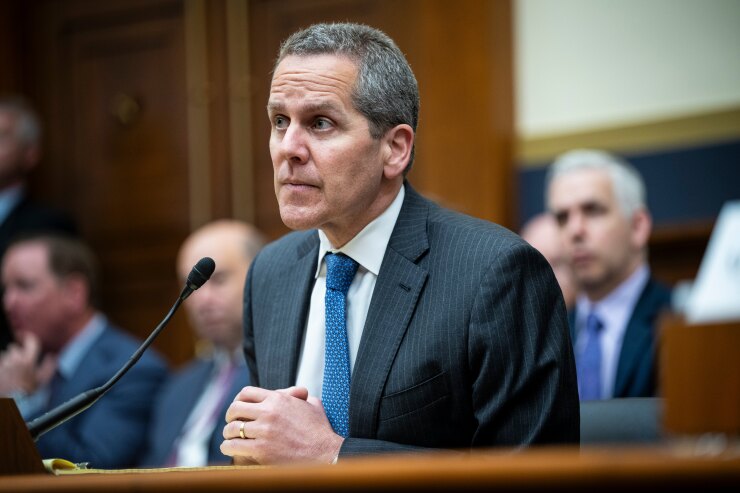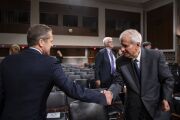
WASHINGTON — The Federal Reserve's Vice Chair for Supervision Michael Barr Monday said that regulators are focused on enhancing banks' liquidity and long-term debt requirements in order to make them more resilient, but said little regarding the Basel III endgame proposal's stipulations that would hike big banks' capital requirements.
Speaking at the Federal Reserve Bank of Atlanta's 28th Annual Financial Markets Conference, Barr highlighted these three targeted adjustments to the liquidity framework as well as other measures underway at the Fed to ensure a robust banking supervision structure.
In order to bolster banks' liquidity positions, he says the Fed is considering requiring large banks to maintain a minimum amount of readily available liquidity based on their reliance on uninsured deposits.
"Uninsured deposits often represent cash needed to meet near-term needs — like paying bills or making payroll — and we have seen depositors act quickly to withdraw these funds if their availability is in doubt," he said. "It is vital that uninsured depositors have confidence that their funds will be readily available, if needed, and this confidence would be enhanced by a requirement that large banks have readily available liquidity to meet requests for these deposits."
Barr also added that as part of this measure, the Fed is considering incorporating some compulsory
"Incorporating the discount window into a readiness requirement would also reemphasize that supervisors and examiners view use of the discount window as appropriate and unexceptional," he said. "We are seeking feedback from banks, and this feedback will help us to further prioritize operational improvements."
Drawing on lessons from bank failures in March 2023, the regulator also floated the idea of restricting banks' reliance on held-to-maturity assets as part of their liquidity buffers — like the liquidity coverage ratio and the internal liquidity stress test requirements. He says this could improve stability during stress conditions. Held-to-maturity assets are often not easily convertible to cash without significant losses. Such a firesale prompted depositor unease that ultimately led to the unraveling of SVB and Signature bank last year.
Barr also suggested recalibrating deposit outflow assumptions for high-net-worth individuals and companies associated with venture capital or crypto-asset-related businesses to address their rapid withdrawal behavior observed during recent market stress.
"As we saw during the stress of a year ago, these types of deposits can flee banks much more quickly than previously anticipated," Barr said.
Barr said little about
"With respect to the acute problems we saw last year, the proposal would also extend the requirement to reflect the impact of unrealized losses on capital to all large banks," Barr said. "This would better reflect interest rate risk in capital, a problem that played a major role in both SVB's and First Republic's failures."
Barr went on to highlight the importance of loss-absorbing resources for banks in light of last year's banking failures. He says
Last August, bank regulatory agencies sought public feedback on a proposal requiring large banks to hold a minimum amount of long-term debt to absorb losses in case of failure. According to Barr, many comments supported the proposal's intent, while some offered suggestions that the Fed is now carefully evaluating.
The Basel III endgame proposal
With discussions still ongoing among members of the Federal Reserve Board and between federal agencies, Barr said all policymakers involved are looking to not only strengthen the finished Basel rule but the cumulative policy framework around bank safety and soundness.
"We are attentive to the interactions across these proposals as well as the potential burden," said Barr. "Ensuring that each of these three components is properly calibrated will help to ensure that banks remain strong and able to maintain their crucial role providing credit to U.S. households and business under a wide range of conditions."





